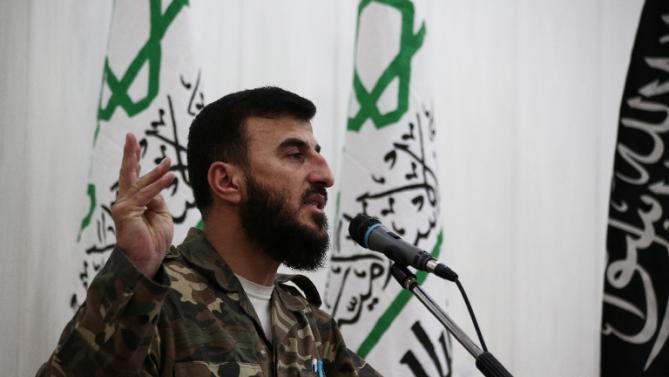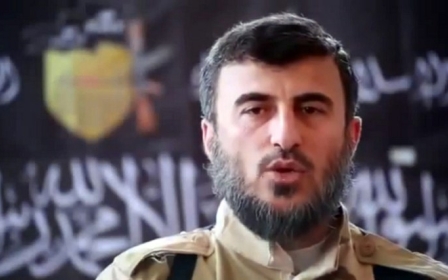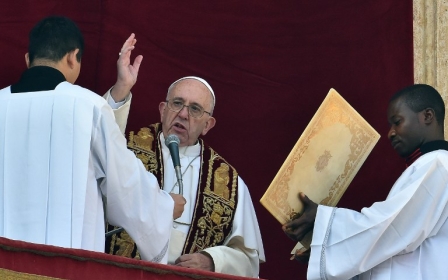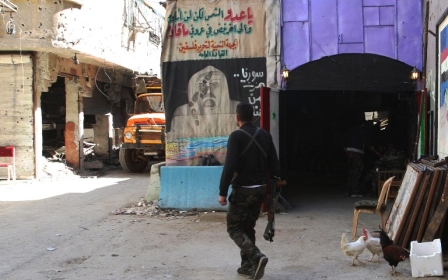Who was Syrian rebel leader Zahran Alloush?

Zahran Alloush, killed in an air strike on a Damascus suburb on Friday, was born in 1971 in Douma, one of the largest towns in Eastern Ghouta. His father was a prominent Salafist preacher who now resides in Riyadh.
Following in his father's footsteps, Alloush pursued religious studies in both Syria and Saudi Arabia
Alloush was arrested in 2009 and was released in June 2011 in a general amnesty, just three months after Syria's uprising against President Bashar al-Assad erupted.
He took up arms, and in 2013 united a number of rebel groups under the banner of Jaish al-Islam. Jaish al-Islam rose to prominence in Eastern Ghouta and has remained firmly opposed to both Assad and to the Islamic State group.
When Alloush, with close-cropped hair, a dark beard, and typically dressed in military-style fatigues, came to prominence during the early days of the revolution, he employed overtly sectarian rhetoric, urging Sunnis to expel members of the Shia and Alawite sects from Damascus.
More recently, he sought to temper his rhetoric, presenting a less sectarian stance, presumably in the hope of securing support from Western backers.
However, the group he led has recently generated severe criticism by human rights groups for rights abuses.
In July, they drew condemnation for executing 18 alleged members of the Islamic State group in a video mimicking IS's own gruesome productions.
And in November, Jaish al-Islam used dozens of captives in metal cages as "human shields" in an attempt to "prevent regime bombardment" of Eastern Ghouta, according to the Syrian Observatory for Human Rights.
The news of the air strike killing Alloush quickly spread among activists and rebel groups online.
"May God accept Commander Zahran Alloush among the martyrs ... and may the factions of Ghouta join forces to bridge the gaps and complete the mission," wrote Khaled Khoja, head of the opposition National Coalition, on Twitter.
Middle East Eye propose une couverture et une analyse indépendantes et incomparables du Moyen-Orient, de l’Afrique du Nord et d’autres régions du monde. Pour en savoir plus sur la reprise de ce contenu et les frais qui s’appliquent, veuillez remplir ce formulaire [en anglais]. Pour en savoir plus sur MEE, cliquez ici [en anglais].




